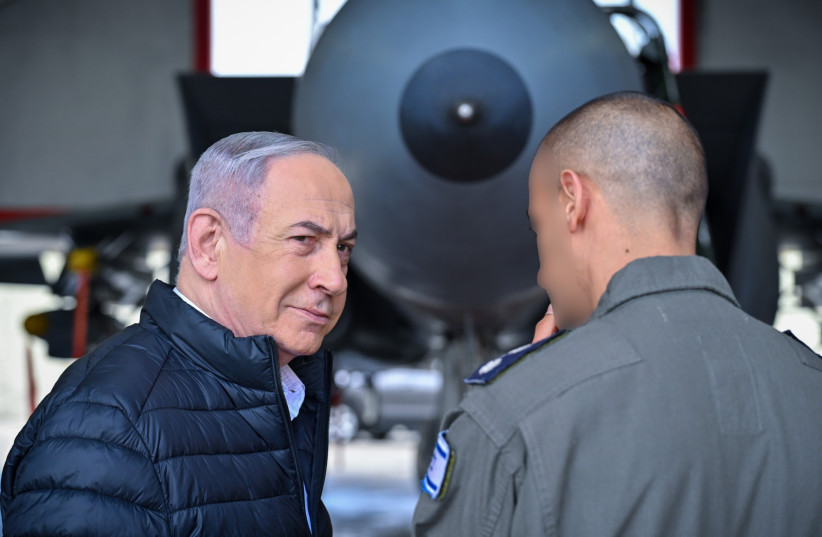Prime Minister Benjamin Netanyahu visited the Tel Nof Airbase on Thursday, where he met with personnel from Squadron 133, which operates the F15 aircraft.
Netanyahu received a briefing from the base's deputy commander and squadron commander on the squadron's activities in the war.

The PM's words
The Prime Minister gave a statement to the soldiers at the base, saying "These are challenging times. We are in the midst of a war in Gaza, which continues with full force. At the same time, we continue the relentless efforts to bring back our hostages, but we are also prepared for scenarios of challenges from other arenas.
"We have set a simple principle: whoever harms us, we will strike back at them. We are prepared to address the security needs of the State of Israel both defensively and offensively. I and the people of Israel rely on you, and may we all succeed greatly," Netanyahu added.
